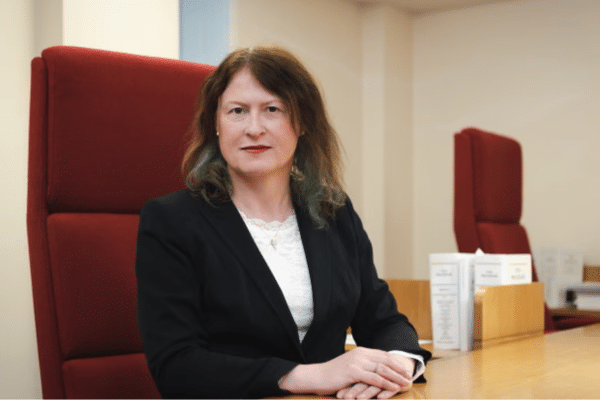
The Big Picture
The UK’s first transgender judge, Victoria McCloud, has launched a challenge in the European Court of Human Rights (ECHR), after the UK Supreme Court ruled that the definition of “woman” in the Equality Act 2010 excludes transgender women — even those with Gender Recognition Certificates (GRCs).
Now retired from the bench and working as a litigation strategist at W-Legal, McCloud is arguing that the decision violated her fundamental rights and those of thousands of trans people across Britain.
A Case That Shook Equality Law
Back in April 2025, the UK Supreme Court sided with For Women Scotland, a gender-critical campaign group. The ruling stated that legal recognition of gender through a GRC does not alter a person’s sex under the Equality Act.
The judgment rippled through the country:
- Public services and private businesses braced for legal uncertainty.
- The Equality and Human Rights Commission (EHRC) issued guidance widely read as a blanket ban on trans people accessing spaces aligned with their gender identity.
- Campaigners on both sides mobilized quickly — some praising the decision, others condemning it as a step backward for human rights.
“No Voice, No Fair Trial”
McCloud, supported by the Trans Legal Clinic, says the ruling silenced the very people it most affected.
“No representation or evidence had been included from us in the 8,500 group [trans people with GRCs]. I was refused. The court gave no reasoning.”
Her legal claim rests on Articles 6, 8, and 14 of the European Convention on Human Rights:
- Fair trial
- Respect for private and family life
- Freedom from discrimination
Life on the Ground
For McCloud, this is not just about theory — it’s about daily reality:
- Being forced into male facilities despite having female anatomy.
- Fears of being sent to male rape crisis centers if assaulted.
- Being searched by male police officers under “protective” policies.
“The court reversed my and 8,500 other people’s sex for the whole of equality law. We are now two sexes at once.”
The Scottish Dimension
While McCloud pursues her case internationally, the fallout in Scotland continues.
- For Women Scotland is suing the Scottish government for failing to swiftly apply the Supreme Court’s ruling.
- At stake: school policies allowing trans pupils to use facilities aligned with their gender, and prison rules enabling some trans women to remain in female estates after risk assessments.
The Scottish government maintains it is waiting for updated EHRC guidance before making changes.
The Watchdog Under Fire
The EHRC has faced criticism for delays and its short consultation period.
In response, Chief Executive John Kirkpatrick took the unusual step of publishing a blog defending the commission’s methods:
“Our use of supervised AI alongside expert legal analysis ensures we give proper consideration to all responses while delivering the guidance that public bodies urgently need.”
Sidebar: Key Dates in the Case
- April 2025: UK Supreme Court rules that “woman” in the Equality Act excludes trans women with GRCs.
- Mid-2025: For Women Scotland sues Scottish government over schools and prisons guidance.
- August 2025: McCloud files case with the European Court of Human Rights.
What’s Next?
The revised EHRC code of practice is expected to land in Parliament soon, sparking fresh political and social battles. Meanwhile, McCloud’s case in Strasbourg could redefine how Europe interprets the intersection of sex, gender, and human rights.
This is not just one woman’s fight — it could reshape equality law across the continent.




